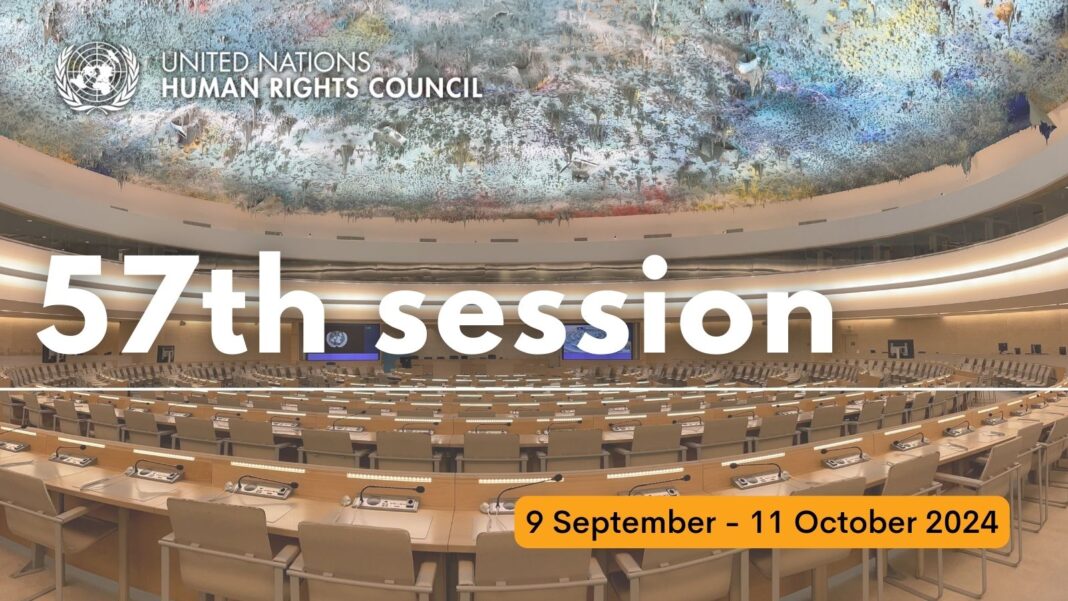Responding to the resolution on Sri Lanka adopted yesterday at the 57th session of the United Nations Human Rights Council, which extends the mandate of the Office of the High Commissioner for Human Rights (OHCHR) including the Sri Lanka Accountability Project by one year, Babu Ram Pant, Deputy Regional Director for South Asia at Amnesty International, said:
“The adoption of the UN Human Rights Council’s resolution underscores the continued need for international scrutiny on human rights concerns in Sri Lanka. While the extension of the mandate is a welcome step towards supporting accountability, it is disappointing to note that the resolution was extended only by a year, despite calls for at least a two-year renewal by local civil society and international organizations.
“As the country is undergoing a period of political transition following recent presidential elections and with general elections scheduled for next month, it is critical that the new Sri Lankan government breaks from the past and fully engages with the UN Human Rights Council and OHCHR’s Sri Lanka Accountability Project. It was disappointing therefore that the government instead chose to continue past policy and express opposition to evidence gathering by the UN. This casts a shadow on the government’s willingness to utilise available resources to ensure accountability for serious human rights violations and risks perpetuation of deep-rooted impunity.
The adoption of the UN Human Rights Council’s resolution underscores the continued need for international scrutiny on human rights concerns in Sri Lanka.
Babu Ram Pant, Deputy Regional Director for South Asia at Amnesty International
“With this resolution, the international community should step up its engagement with the new Sri Lankan government towards meaningful progress on truth, justice and reparations. Meanwhile, Sri Lanka must fully cooperate with UN human rights mechanisms including the Accountability Project and demonstrate its commitment towards all victims and survivors who have been waiting for justice and accountability for the serious human rights violations and other crimes under international law committed during Sri Lanka’s decades-long internal armed conflict.”
Background:
The mandate of the Office of the Sri Lanka Accountability Project was first established in 2021, in accordance with Resolution 46/1, which mandated OHCHR to “collect, consolidate, analyse and preserve information” on gross human rights violations for future accountability efforts. The mandate was extended in 2022 by Resolution 51/1.
The Accountability Project is a valuable resource for evidence preservation and documentation that has the mandate to look into a range of violations from Sri Lanka’s internal armed conflict to subsequent abuses such as the 2019 Easter Sunday attacks.
